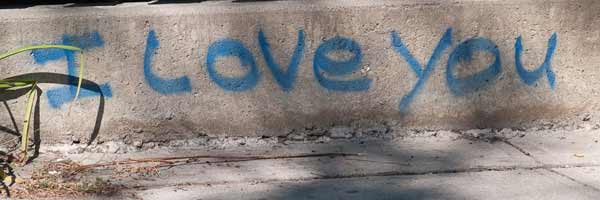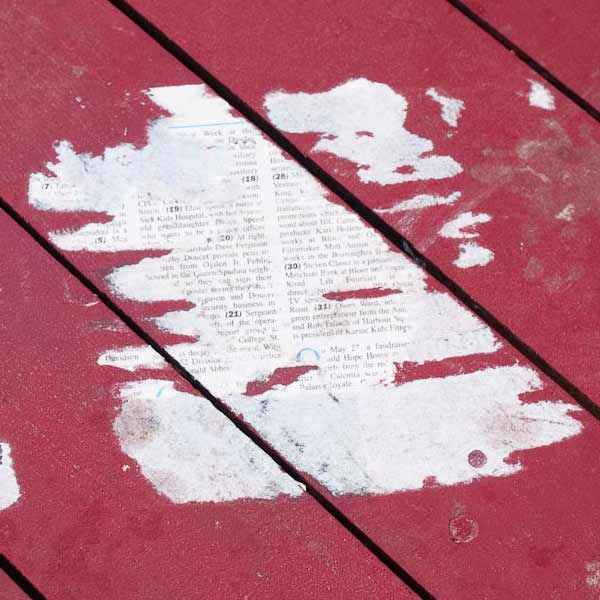As part of Canada’s Culture Days, we will be celebrating Word On The Street (WOTS) in locations across the country including Queen’s Park here in Toronto: a chance to celebrate literacy, freedom of speech, and the publishing industry. Maybe they don’t put it quite that way, but what good would it do to honour the founding ideals of our liberal democracy if we didn’t try to sell people stuff at the same time?
I have my own WOTS. It’s more literal-minded than the annual event that will return to our city this Sunday. I look for words on the street, or at the very least, words in public spaces. Words that don’t try to sell us anything. Words that don’t try to persuade us of anything. Words that don’t proselytize. Words that don’t regulate us: stop, yield, no parking.
Words on the street are precious and rare. I’m amazed how few of such words there are. I’m reminded of Basho, the 17th century Japanese poet. Roo Borson describes how he used to craft poems, then leave them in public places as a kind of offering, perhaps to the place, perhaps to the people who passed through that place. Do people do that anymore? More likely they try to monetize the value of their words. Sentiment stripped of motive is almost unthinkable now.

On Monday, I found “I love you” spray painted on a curb in Kensington Market. I want to believe in these words on the street. But I’m jaded enough to take a cynical view: more than any other words, these are burdened by ulterior motives–money, persuasion, coercion, violence.

On Saturday, I found something else: a piece of paper stuck to a table at an outdoor café in the Distillery District. Someone had tried to remove the paper, tearing bits of it away, but leaving most behind. I call it accidental découpage. The accidental nature of the words gives them a kind of purity. They have no design on my soul or my wallet. They simply are. These words don”t even have a context.
These words on the street remind me of fragments from ancient manuscripts, bits of the Codex Sinaiticus say, or the Nag Hammadi library. We read fragmentary sentences in koine or coptic about archons and beings of light and scratch our heads. Our scholars try to give it a context. They call it scripture. Churches get their hands on it and give it a gloss. They call it religion. Clergy give it a local application and call it morality. Pretty soon people are killing one another for words that, at least in the beginning, just sat there and didn’t trouble anybody.
I’d prefer to leave my words on the street where I found them.
